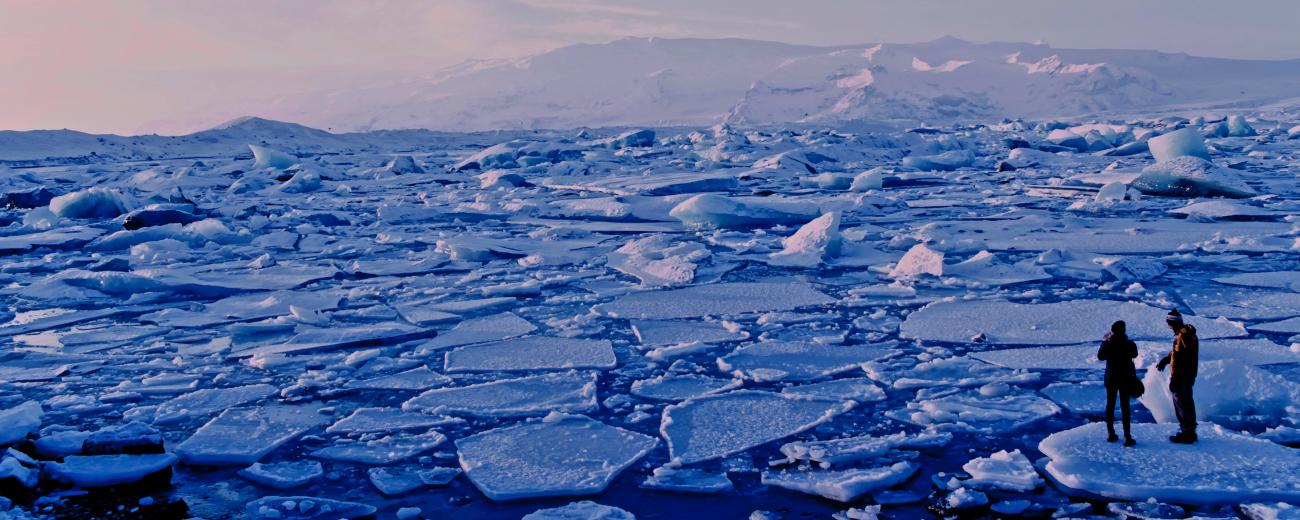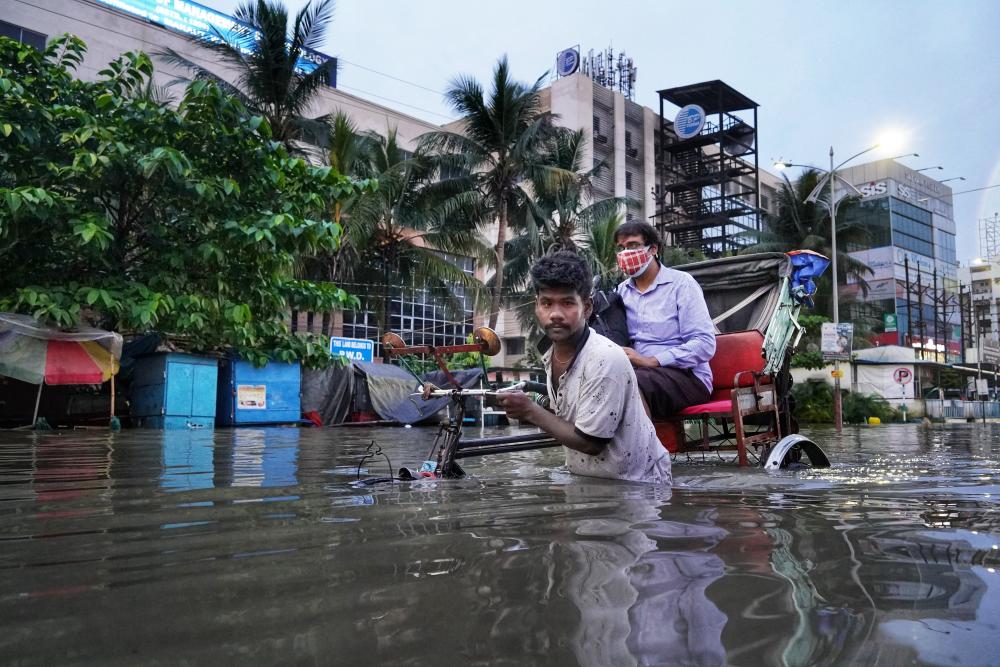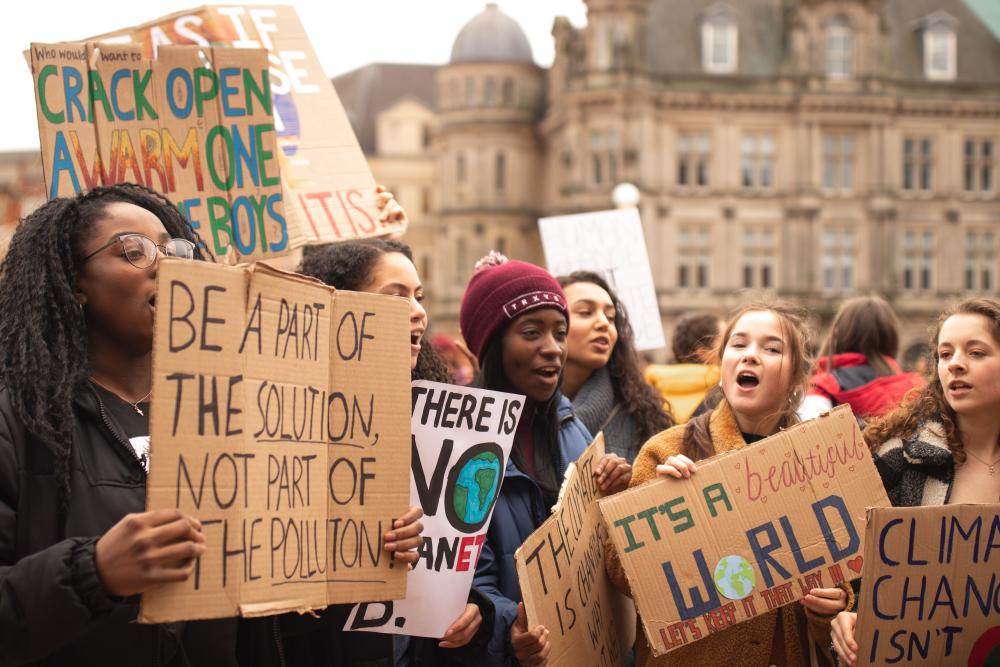Humanity on thin ice: Why Area Studies matters for planetary survival


This blog is co-authored by Rachel Harrison and Geir Helgesen.
On 20 March 2023 the scientific body that advises the UN on rising temperatures – the IPPC - released its latest report on climate change. It points to "a rapidly closing window of opportunity to secure a liveable and sustainable future for all" (Intergovernmental Panel on Climate Change). Claiming it to be a "survival guide for humanity", UN chief Antonio Guterres introduced the report with a warning: “Humanity is on thin ice – and that ice is melting fast […] The climate time bomb is ticking.” With a timely reference to the recent Oscar award-winning Asian-American movie Everything, Everywhere, All at Once, Guterres alerted humanity to the need for this “clarion call to massively fast-track climate efforts by every country and every sector and on every timeframe.”
In this short opinion piece on the current role of Area Studies for planetary survival, we outline how this field of academic studies has the capacity to play an essential role in responding to the demand for action everywhere, all at once, through informing necessary attention to and understanding of cultural difference.
We are on the brink of planetary climate catastrophe
Long relegated to the margins of academia as an alleged sub-discipline of the humanities and social sciences, the focus of Area Studies has always been on a specific geographical region – an “area” - and its analytical tools a combination of the available and the practical. While much valuable research and socially significant information has been produced as a result, we argue that the current state of world affairs demands a reinvention of the Area Studies approach to respond directly and practically to questions of planetary survival. The one-time optimism that globalization would lead to the speedy development of a more united and harmonious world has proved to be misplaced. Instead, it has been superseded by two terrifying and urgent realities: one, exposed and defined by the natural sciences, that we now stand on the brink of planetary climate catastrophe; the other, that we move closer and closer to widespread global conflict in the ever-deepening tensions between China/Russia and the West, exacerbated by the war in Ukraine. These two tragedies are interconnected, with positive intervention in the latter precluding significant progress in the task to address the former. Both necessitate vital contributions, informed by an awareness of cultural differences and driven in turn by a refocused approach to Area Studies.
Reinventing Area Studies: Either we cooperate or we perish
That our environmental crisis presents the threat of annihilation is beyond all reasonable doubt. Scientists and governments around the world are convinced of it, and their warnings are reiterated by dedicated activists. “The climate is destabilized and is about to collapse”, writes Greta Thunberg in her important and inspiring work, The Climate Book (2022), in which she gathers 100 international experts from relevant disciplines to explain in clear language what we are facing and what we must do in response. Just as the crisis is a man-made one, so too, the solution must be. To date, the world's political and economic leaders have met in countless places and, on numerous occasions, in conferences large and small, long and short. Deadlines have been set, agreements made and signed. Sighs of relief have resounded, and tears of disappointment subsequently flowed; because, as Thunberg explains it, in this “age of communication”, “what you say can easily outweigh what you do.” Her frustration is echoed by Guterres, who, speaking at COP 27 in November 2022, issued a stark warning to the world: either we cooperate, or we perish!
Enormous though the challenges of climate change are, their reality is at least widely accepted. What remains is for sufficient collaborative action to be taken in response. But homo sapiens have a rather checkered history when it comes to the question of cooperation. While there is plenty of evidence that it is more than possible, there is as much, if not more, to indicate what a complex undertaking it can be for humankind to collaborate constructively.
Developing our knowledge of cultures' different ideas, values and norms to establish global cooperation
The success of shared global action presupposes not only shared insight and will and shared understanding and acceptance of differing cultural values, but also requires an end to international animosities and the prospect of widespread war. Although the demise of the Soviet Union and its satellites brought an end to the ideologically informed Cold War, the persistence of differing cultural and political ideas, values and norms continues to exacerbate current conflicting relations between East and West, Europe and Russia and the USA and China.
The failed hope for the dawn of a harmonious global culture in which difference is totally and permanently erased has instead given way to the realization that embedded cultural beliefs and practices are in fact somewhat resistant to change. Different cultures in different regions of the world have, in reality, permeated people’s ideas and behaviours differently. It is for this reason that identical institutions in different parts of the world function in differing ways. And it is also why the same words may express differing opinions and attitudes when English language is the common means of international communication. In relation, therefore, to climate change and impending environmental doom, as well as to conflicting relations between East and West that currently threaten to escalate to the point of all-out war, it is essential that we develop our common knowledge of the many cultures' different ideas, values and norms, and how they perceive humanity, social reality and nature. Without these basic insights, it is impossible to establish global cooperation and implement globally sustainable action.
Area Studies can and must play a central role in our survival
As the starting point for addressing our current planetary precarity, we, therefore, argue that Area Studies for planetary survival can and must play a central role in helping to address the challenges posed by the need for global cooperation. Area Studies is well qualified to undertake this challenge due to the fact that cultural differences lie at its very point of departure, making cross-cultural interaction the norm and facilitating cross-cultural understanding. Hence it can provide the vital tools necessary for fostering meaningful approaches to global problem-solving.
How is it, then, that, so far, scholars in current Area Studies have taken something of a “back seat” in debates on global warming and international peace negotiations? One reason is that their focus, as well as their theoretical and methodological underpinnings, are primarily rooted in and limited to the historical experience and the cultural perspectives of Western societies. Another is that cooperation and communication between the social sciences and the humanities are sadly all too rare. But can we really afford to remain blind and deaf to the fundamental choice confronting all of us? Will academic quarrels continue to make us indifferent to the wider world and us indifferent to it?
Time is short, but luckily, we do not have to start from scratch
What, therefore, should scholars of Area Studies ideally aim to do in this age of communication that Thunberg draws our attention to? How can we use our expertise to respond to approaching catastrophe? How can we draw on our knowledge of cultural differences to address the difficulties of global collaboration? One way is by serving as a bridge-builder in the necessary close cooperation between actors from countries with such different cultural backgrounds that it is precisely this difference that stands in the way of achieving a common understanding, taking joint decisions and joint action, without which the consequences of an expanding war and climate change will be calamitous.
To intervene in these most pressing and important tasks must become the current focus for Area Studies, with a principal turn to focus on social cultures and cross-cultural communication. Time is short, but luckily, we do not have to start from scratch. Existing Area Studies and existing academic disciplines that have worked with interpersonal and international issues have generated a wealth of knowledge now at our disposal. Area Studies for planetary survival must gather, coordinate and develop this knowledge in international teams while at the same time working to develop guidelines for cross-cultural dialogue in collaboration with supranational organizations such as the UN, the EU, ASEAN, the Nordic Council and other regional bodies.
About the authors
Rachel Harrison and Geir Helgesen co-author this blog.
Rachel Harrison is a Professor of Thai Cultural Studies at the School of Languages, Cultures and Linguistics at SOAS, University of London and Convenor of the Department’s MA Programme in Cultural Studies. She has published widely on issues of gender, and sexuality, modern literature and cinema in Thailand as well as more widely on questions of cultural difference, Otherness and demonization, including the co-edited volume with Geir Helgesen, East-West Reflections on Demonization: North Korea Now, China Next? published by NIAS, University of Copenhagen in 2021.
Originally from Norway, Geir Helgesen was trained as a cultural sociologist at the University of Copenhagen where he received his PhD. He has, throughout his subsequent career, worked on East Asian political culture and cross-cultural relations. In 2018 he retired as director of the Nordic Institute of Asian Studies and currently holds a guest fellowship at Fudan University in Shanghai.





